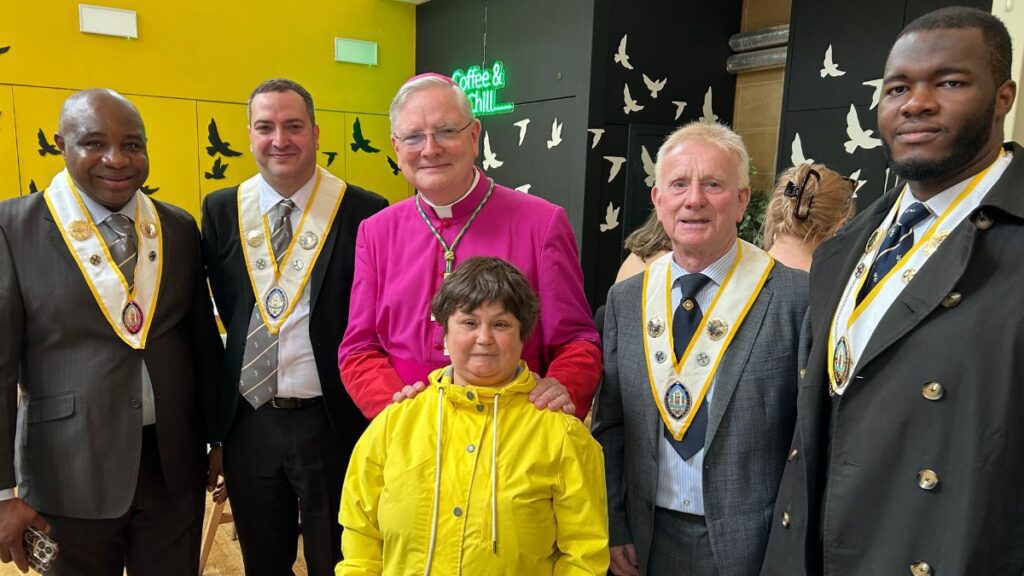Archbishop Leo Cushley celebrated Mass today at St Mary's Cathedral, Edinburgh, in thanksgiving for his 40th anniversary of priesthood.
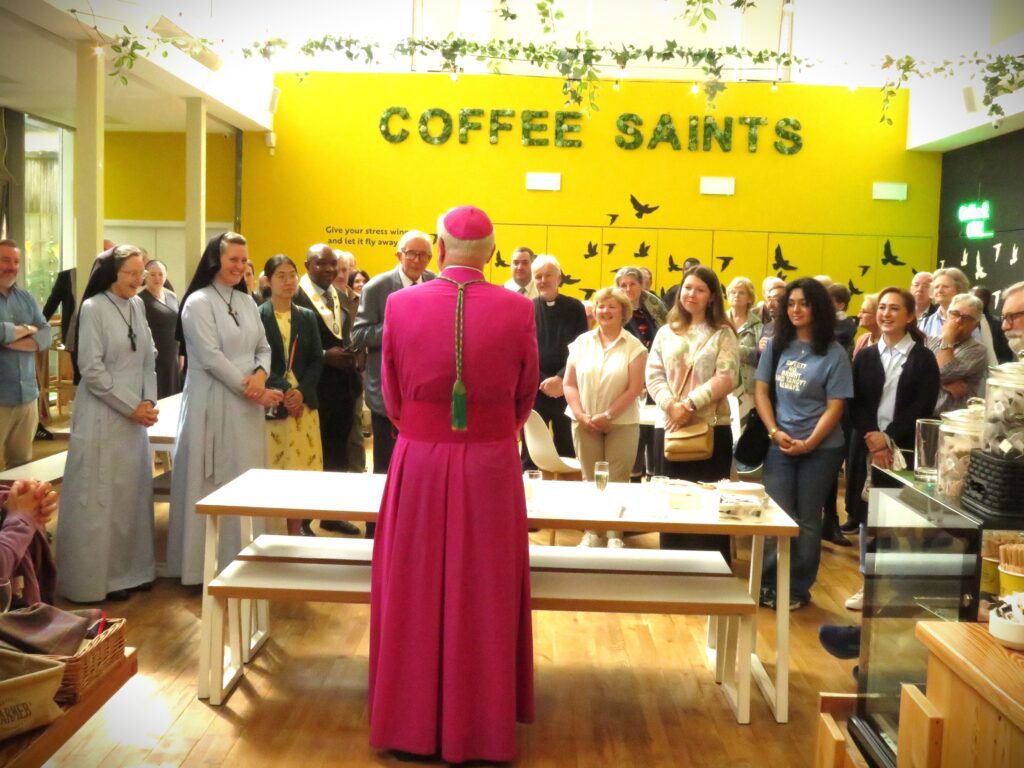
In his homily he said: "Being a priest has been a wonderful, unexpected adventure that has brought me, to my great and contented surprise, to here and now.
"I’m very grateful to all of you who have been part of the journey, and I ask you to continue your affection and support for me and my brother priests here.
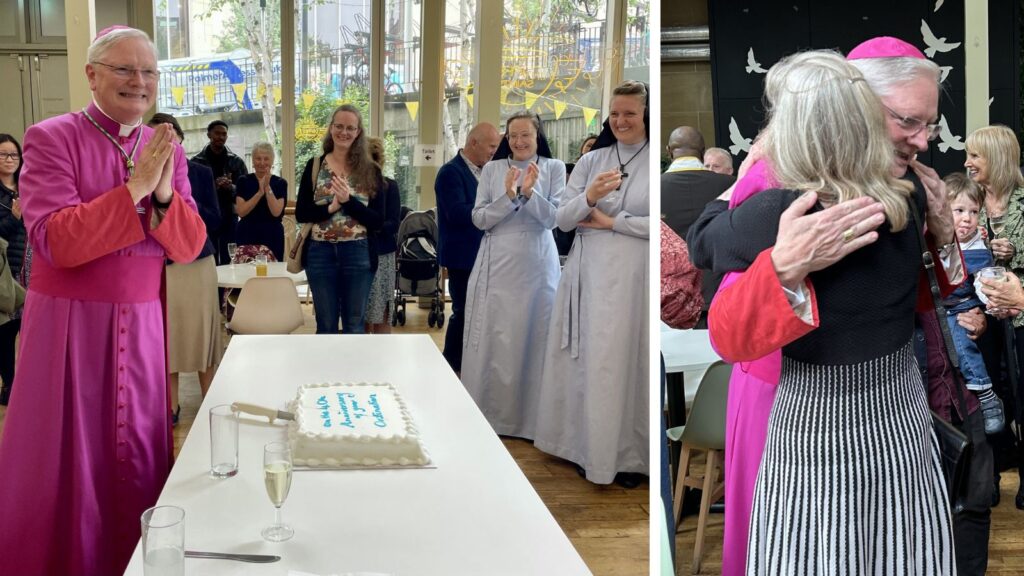
"Help us to continue to seek the will of God, and to embrace it wholeheartedly and cheerfully, wherever the Lord wishes to take us."
A reception was held after Mass in Coffee Saints where Archbishop Leo was joined by family, friends and wellwishers.
Cathedral Administrator Mgr Jeremy Milne said: "We thank you for responding to the call so generously, for your long years of service to the Church, and for your dedicated leadership of the Archdiocese.
"We pray that God may grant you many years to come."
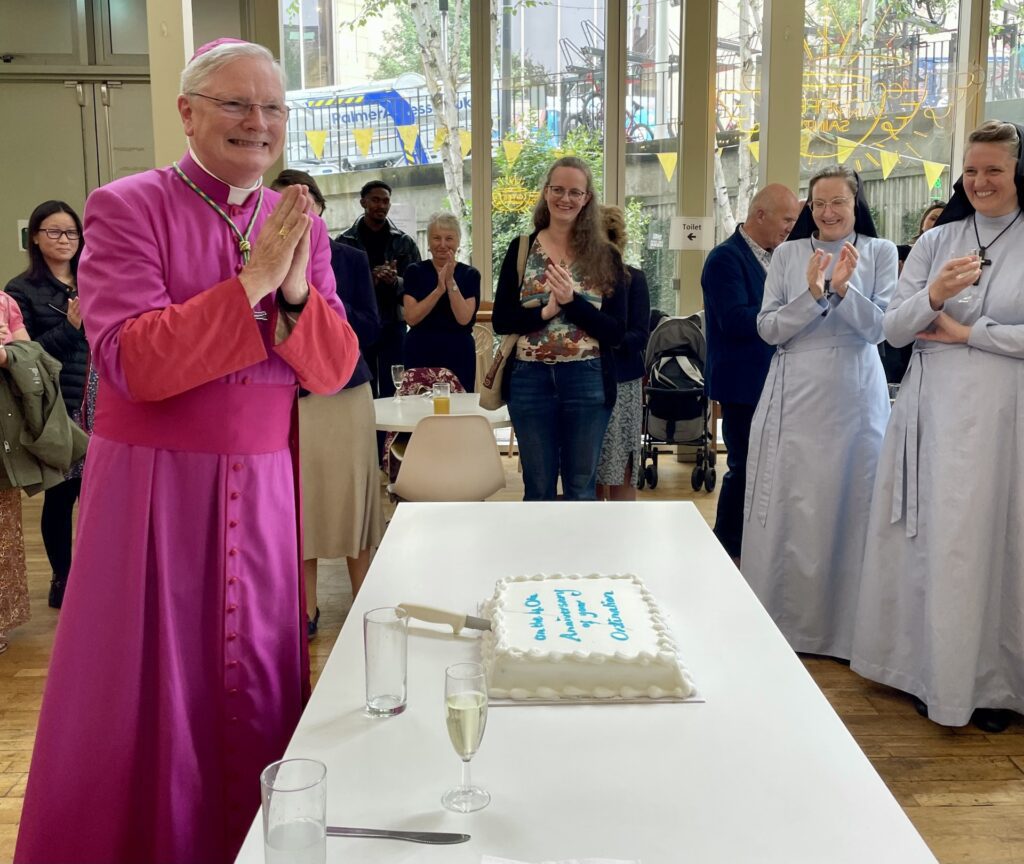
The Archbishop was ordained a priest for the Diocese of Motherwell on 7 July, 1985.
After serving as a priest for several years he was invited to join the diplomatic service of the Holy See.
He has worked in Burundi, Portugal, South Africa, Namibia, Swaziland, Lesotho and Botswana.
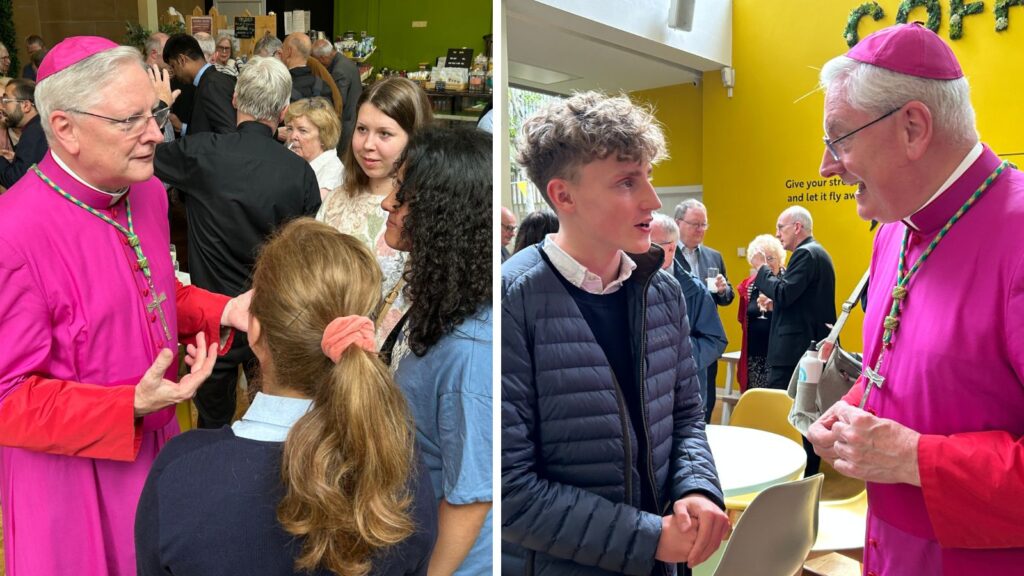
He was First Secretary for the Holy See’s Observer Mission to the United Nations in New York from 2004 to 2007. From 2009 to 2013 he served in the Vatican and was head of the English-language section of the Secretariat of State.
He was installed as the 8th Archbishop of St Andrews and Edinburgh in 2013.
Archbishop Cushley's homily
My dear friends,
A good Sunday and a warm welcome to you all on the day set aside to celebrate 40 years since my ordination to the priesthood.
The actual date was the 7th of July, but today is more convenient for most of us, so here we are. A particular welcome to my family and friends, to those who have travelled from across the country, and even across the Pond to be here. It’s lovely to have you all here.
The priesthood for me has been a bit of an adventure, and an unexpected one. I was ordained for Motherwell Diocese in 1985, and I was very happy working and living in Lanarkshire.
The furthest I had been sent was to our parish in Biggar, but that all changed on 1 December 1992, when I was asked to leave all that and go back to Rome and retrain, this time as a diplomat.
I spent the next twenty years at the service of the Holy See, including six years in Africa, five years in the Vatican, four years in a civil war, three years in the United Nations in New York, and three years in Portugal. None of this was in my plans.
Coming to Edinburgh wasn’t part of my plans either, and yet, apart from my time in Rome, Edinburgh is now the place I’ve lived the longest, and before you ask, yes, I am very, very happy here.
And these are perhaps the first lessons I might to pass on to the next generation of priests and leaders in the Church: first, the Lord has plans for you, and they may be very different to the ones you had in mind. And you have to learn that and accept that at some point.
And, related to that, learn to be obedient and be trusting, and you will happy. Doing your duty gets a bad rap these days, and I am mystified by this.
Keeping your promises, doing your duty, embracing obedience, is one of the most liberating and fulfilling things I can think of. To place your will in the hands of your superiors might seems scary out there in the world, but in the Church, it is a liberation.
Once you give up careerism, or the drive to make more money, the greed, the pride, the rat race, you are free. You are free to give yourself with trust and confidence and an open heart.
By putting my will at the disposal of the Pope and my superiors in the Holy See, I’ve travelled all over the world, met wonderful people, seen our brothers and sisters in the Church serve their neighbours and overcome adversity, and learned what a loving, welcoming world-wide family we all belong to in the Church. It's difficult to describe briefly, but you know it when you see it, whether you’re in Cairo or the Kalahari.
I saw a lot and, I hope, I learned a lot. Pope Francis made much of us learning again to listen to each other. If we talk all the time, we stop listening; if we stop listening, we stop learning; if we’ve already made up our mind, that mind will perforce be more limited.
And maybe that’s the second thing I would pass on to future priests and leaders: learn to be open, to listen, to learn. One of our friends loves to say, “Every day’s a school day”, and he’s usually right.
There are the eternal, wonderful truths of our faith, and of nature, and of the cosmos around us. There is also so much to learn, or see again, and see afresh. The Church proposes the truths of Jesus Christ to the ages, but that doesn’t mean that we, her members, have got all the answers, all of the time. New problems require fresh thinking.
Thinking that is true and faithful to our divine Master, Jesus of Nazareth, thinking that is an authentic and therefore helpful development of the faith passed down to us, and that we strive to pass down faithfully to the next generation. We need to be both prudent and open as well.
And to do that we must keep Jesus Christ at the centre of our vision.
And at the centre of that vision, we need to keep the Sunday Eucharist, the constant, sure focal point that binds us all together in communion with our living Lord, and, through the successor of Peter in the See of Rome, with all our brothers and sisters, both alive and asleep in the Lord.
It should also be fairly obvious that the priesthood is a life of service. And for the avoidance of doubt, it is a service of other people, not oneself.
Too often those of us who have promised a celibate life become withdrawn, shrivelled up, enclosed within themselves. Celibacy is intended to encourage the gift of ourselves fully to others: a gift of our time, our talents, even our lives.
But if we don’t nourish that gift-of-self within us and keep that spirit alive, consciously and unconsciously, over the years, that space that we ought to fill with service of others, can be easily filled instead with self-regard, self-pity, self-serving.
Of course, you don’t have to promise to be celibate for this to happen to you; plenty of people are only interested in Number One; but it’s a greater tragedy when it’s a man or a woman who has promised to serve others through celibacy, and instead ends up serving only themself.
Like consecrated virginity, celibacy should be liberating, it should be filled with joyful and contented service of God’s people; again, something for us all to notice and to better in ourselves from time to time.
Priesthood is also about knowledge, respect and promotion of the sacred mysteries of our faith, and in passing – as we say in the Ordination rites - about conforming ourselves to the mystery of the Lord’s Cross. We are to have a heart for action and a soul for prayer. As it happens, this very point arises in today’s gospel: are we to be like Martha or like Mary? Should priests give priority to a heart for action, like Martha, or a soul for stillness, like Mary?
It’s a good question for all the Lord’s disciples, so it’s also a question for us priests.
Are you a Martha or a Mary kind of disciple?
Are you a Martha or a Mary kind of priest?
First of all, it’s curious to me that in the history of the Church, it is Martha, not Mary, who is the one who has become by far the more celebrated of the two sisters. And yet our Lord gently directs us, and Martha, to the example of her sister Mary, apparently doing nothing. But, as our new translation has it, the Lord says that Mary is the one with the ”good portion”. Mary’s got the good bit. It’s not a criticism of Martha’s service, but more of a gentle reminder to get things in the right order.
We are first to give patient attention to the Lord; if not, what kind of service are we going to give? Our service risks being empty or, at least, more remote than it need be from the mind of the Lord, and how He wants us to serve. And the Lord never says, “Look, it’s one the other, either the heart of Martha or the soul of Mary”.
Disciples need both heart and soul. Without the heart of Martha, nothing would get done. Without the soul of Mary, we would have little relation to God. We ought to embrace action; but it’s better if it’s informed first by stillness before God, learning of His will for us, and embracing it lovingly and willingly. Then acting.
My friends, I didn’t set out today to give you a synthesis of what it’s like to be a priest, or what it has been like to be this priest. These are just a few preliminary notes, a couple of insights.
But briefly, for my part, being a priest has been a wonderful, unexpected adventure that has brought me, to my great and contented surprise, to here and now.
I’m very, very grateful to all of you who have been part of the journey, and I ask you to continue your affection and support for me and my brother priests here. Help us to continue to seek the will of God, and to embrace it wholeheartedly and cheerfully, wherever the Lord wishes to take us.
Please pray for us, as we pray for you, that we will all be good and faithful brothers and sisters to each other, and that the good Lord will bring us all one day together, to be happy with Him forever.
Thanks for listening and God bless you all!
